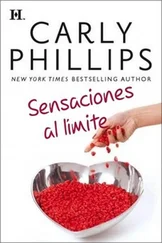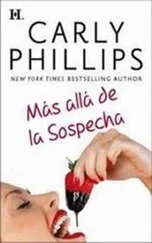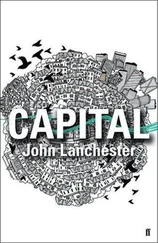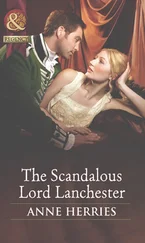‘Make yourself at home. I’ll only be a minute,’ she says. At some point, while he was not looking, she has managed to take off her coat.
Mr Phillips goes across to the window. It is an amazing view; you can suddenly see why people want to live in these flats. He is looking north-eastwards across the middle of London, and can see the Post Office Tower, the Houses of Parliament and St Paul’s, all three. Aresidue of his Catholic education is that high places always make him think of the Devil tempting Jesus in the wilderness, taking him up high into the air and offering him the world. In this light it looks like a pretty good deal. His own house, about five minutes’ walk away, is not visible from here: a small block of offices cuts off the line of sight. But he can see the railway line that eventually runs behind the houses across his road, and the single green field, grandly called Wilmington Park, where people take their dogs to crap.
Martha comes back carrying a tray which has a teapot underneath a bulbous cosy, cups and saucers, a bowl of sugar cubes and a plate of biscuits. She puts the tray down on a low table beside a reclining armchair that faces a small, old television. A touch of bustle about her movements makes Mr Phillips see she is enjoying having company.
‘Sugar?’
‘White without, please.’
Mr Phillips tastes his tea.
‘Best drink of the day,’ says Martha, who then blushes. ‘Brian used always to say that.’
‘What did your husband do?’ asks Mr Phillips. There are no photographs of children so he does not feel that is a safe question.
‘He was a teacher,’ says Martha. ‘RE. At St Aloysius’s, for over thirty years.’
‘I was at St Aloysius’s,’ says Mr Phillips. ‘What was his surname?’
‘Erith.’
‘Mr Erith! He taught me! I remember him! I thought I recognized his picture! He was very …’
Mr Phillips runs into trouble at this point. Mr Erith was the loony RE teacher who talked about St Augustine and sin all the time. ‘Mad’ was the word that would honestly come next.
‘… he was a very good teacher,’ Mr Phillips finishes.
He gets up and goes across to the photographs. Sure enough, that is Mr Erith, looking more relaxed and casual than he had done at school, but the same man none the less. And now Mr Phillips notices the titles of the books. Gravity and Grace. Church Dogmatics. Mere Christianity. The Screwtape Letters. The Sickness Unto Death. Either/Or. The Varieties of Religious Experience. Mr Erith.
‘He … I never knew he kept fish.’
‘Tropical fish.’
‘He was a very memorable teacher,’ says Mr Phillips. ‘I often think of him still.’
Martha, with great dignity, simply smiles. Then she reaches down under her chair and takes out a thick album which she shyly opens and hands across to Mr Phillips. For a second he thinks it is more photographs, but then he sees that it is a series of embroidered mottoes, obviously something Martha has made herself. The first of them, in pink against a purple background decorated with flowers, says: ‘The masses need something that will give them a thrill of power. Anew age of magical interpretation of the world is at hand, of interpretation in terms of the will and not of the intelligence’. Below that, in smaller lettering but the same shade of pink, it says, ‘Adolph Hitler’.
‘I say,’ says Mr Phillips.
‘He kept a little notebook of sayings he liked,’ says Martha. ‘I started doing this after he died as …’
Mr Phillips decides she means as something to do, or as a way of remembering him. There are several more embroidered pages in the album. The next one says: ‘Happiness is the maximum agreement of reality and desire. Joseph Stalin’. It is yellow on a blue background with an abstract pattern. The one after that says: ‘The waste even in a fortunate life, the isolation even of a life rich in intimacy, cannot but be felt deeply, and is the central feeling of tragedy. William Empson.’ That one is all in different shades of green. ‘Nothing, whether deed, word, thought, or text, ever happens in relation, positive or negative, to anything that precedes, follows or exists elsewhere, but only as a random act whose power, like the power of death, is due to the randomness of its occurrence. Paul de Man.’
‘Golly,’ says Mr Phillips. He closes the book.
‘Do you mind my asking something?’ he says. ‘The boys at school always used to speculate about what Mr Erith had done before he became a teacher. I don’t know why, quite. He just didn’t seem the teacher type.’
‘I got so many letters when Brian died. Quite a few of his old pupils said that. Some of them still write.’
‘How, er, how long?’
‘Five years,’ says Martha. ‘Sometimes it seems like twenty years, and sometimes like ten minutes.’
‘Yes, it’s like that, isn’t it?’
Martha seems to be remembering things. There is silence for a while, and then she says:
‘He trained to be a priest. He was in the seminary for two years as a young man, and then he left. He started to disagree with all sorts of specific points of doctrine. The main thing was that he became convinced that God didn’t create the world. He said that nothing about the world made sense if you thought it was made by God whereas if you thought it was made by the Devil, a lot of things were much more clear. Your duty was to leave it behind and get closer to God. So you were supposed to reject this world in favour of a higher one. But he kept all that to himself in later life.’ She smiles again. ‘Did he used to talk about sin a lot?’
‘He did, rather.’
‘He always did that. He used to say it was the only bit of religion schoolboys had any interest in.’
‘I hope you don’t mind me saying so, but we thought he was a bit bonkers.’
Martha makes a face.
‘He knew that most of the boys thought that. He said it was a good way of getting them to listen.’
‘I didn’t realize he lived here. I’d have come to see him.’ Even as he says it Mr Phillips wonders if it is true. He and Martha drink their tea.
Back down on the street, his knees trembling and stinging from the thirteen-storey descent down the dank stairwell, Mr Phillips set out on the last stretch home. He weaves down Kestrel Lane, past the Afro-Caribbean barber and the travel shop and the two small supermarkets, and then crosses into the residential quiet of Middleton Way. The cutting-through cars have disappeared for the evening. On the pavement in front of him, at what can only be a highly uncomfortable angle, are a pair of legs. They belong to a man who is lying on his back underneath a battered blue Ford Fiesta. Beside the legs are an open toolbox, a can of WD40 and an oily rag. This is no surprise to Mr Phillips, since this near-neighbour is very often to be found in exactly this position, especially at evenings and weekends. Leaving his toolbox there where anyone could steal it while he lies trapped under the car seems a trusting gesture, like a well-adjusted dog lying on its back to sleep.
Rounding the corner from Middleton Way, Mr Phillips is nearly run over by a boy on roller-skates, dressed from head to toe in shiny cycling clothes — Lycra shorts, orange top, blue helmet. ‘Sorry,’ the boy calls out over his shoulder as he vooms past. Mr Phillips doesn’t recognize him.
And then Mr Phillips turns into Wellesley Crescent. Most people have already got home and there is hardly anywhere left to park. Happily there is no sign of Mr Palmer, a.k.a. Norman the Noxious Neighbour. Mr and Mrs Wu from the Neighbourhood Watch meeting are standing on their doorstep, chatting to a man in overalls whom Mr Phillips hasn’t seen before. On the other side of the street, though, outside Mr Phillips’s house, is a much more surprising sight. Thomas is standing with his shirt off beside a bucket of soapy water, carrying a sponge which he dumps on top of Mr Phillips’s car windscreen, squeezes, and then wipes across the glass. Thomas, in short, is washing the car. This is such an unexpected vision that Mr Phillips stops short. But he doesn’t want Thomas to see him standing there just watching, so he gets moving again and comes up behind his son, who turns just as he arrives at the now gleaming Honda.
Читать дальше
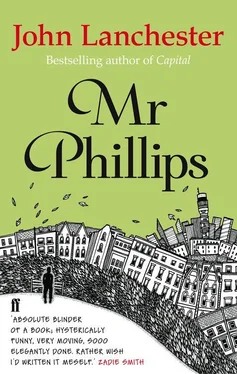



![Unknown - [Carly Phillips] The Bachelor (The Chandler Brothe(Bookos.org) (1)](/books/174132/unknown-carly-phillips-the-bachelor-the-chandle-thumb.webp)
